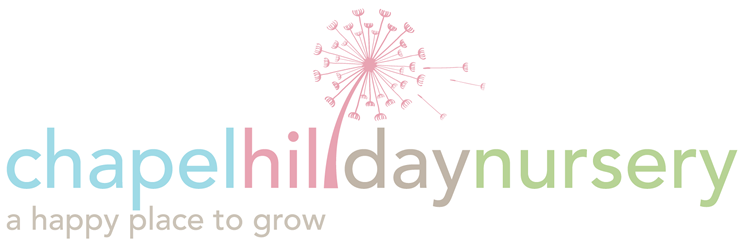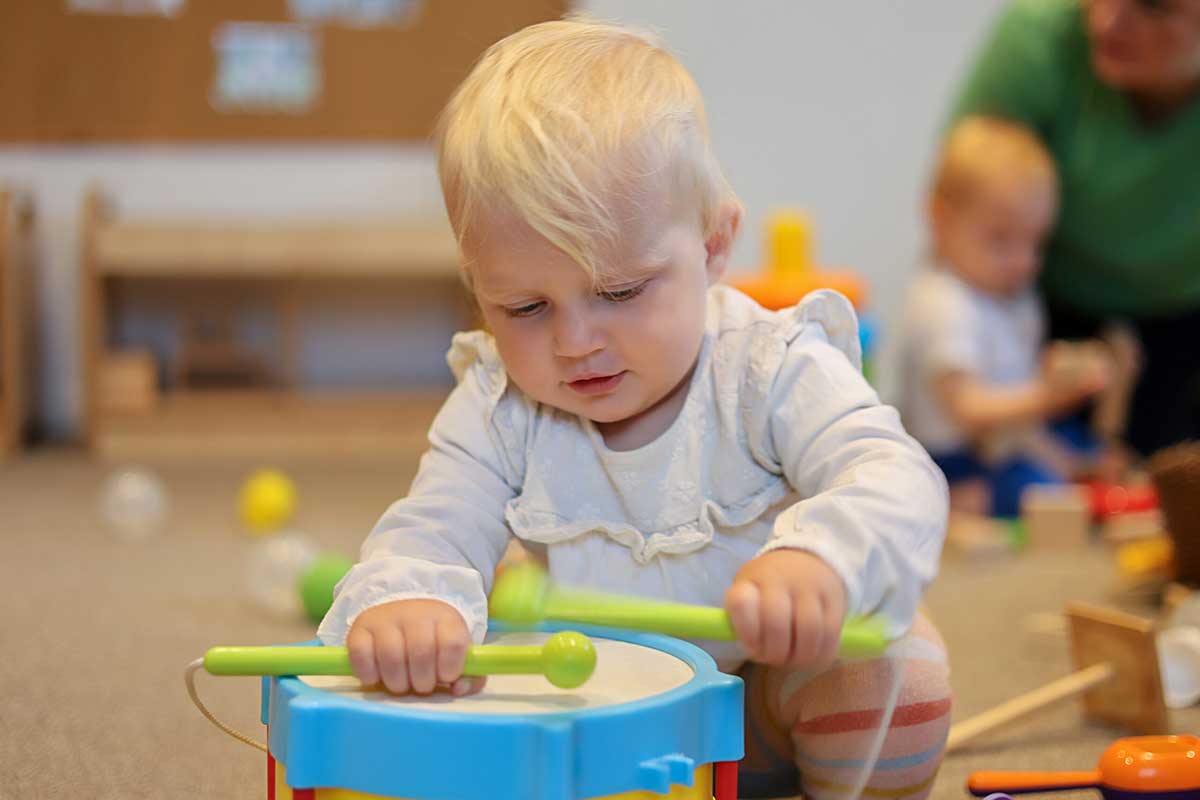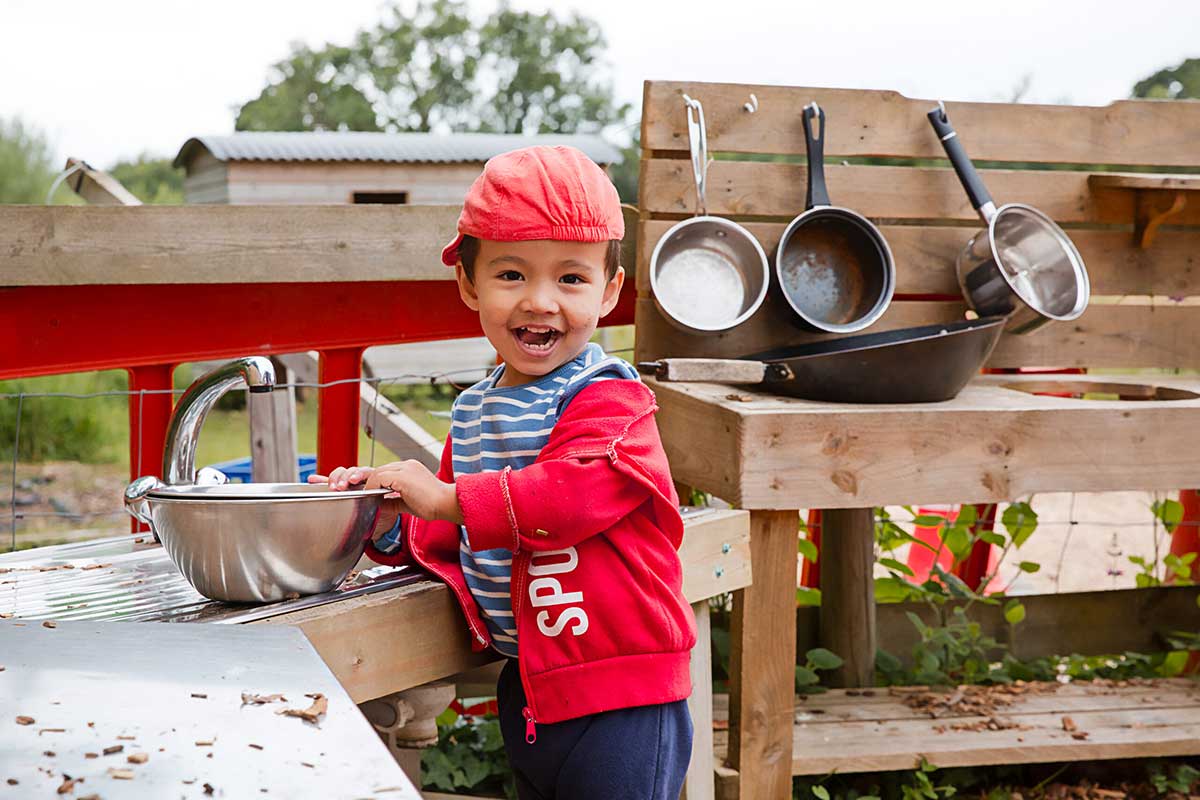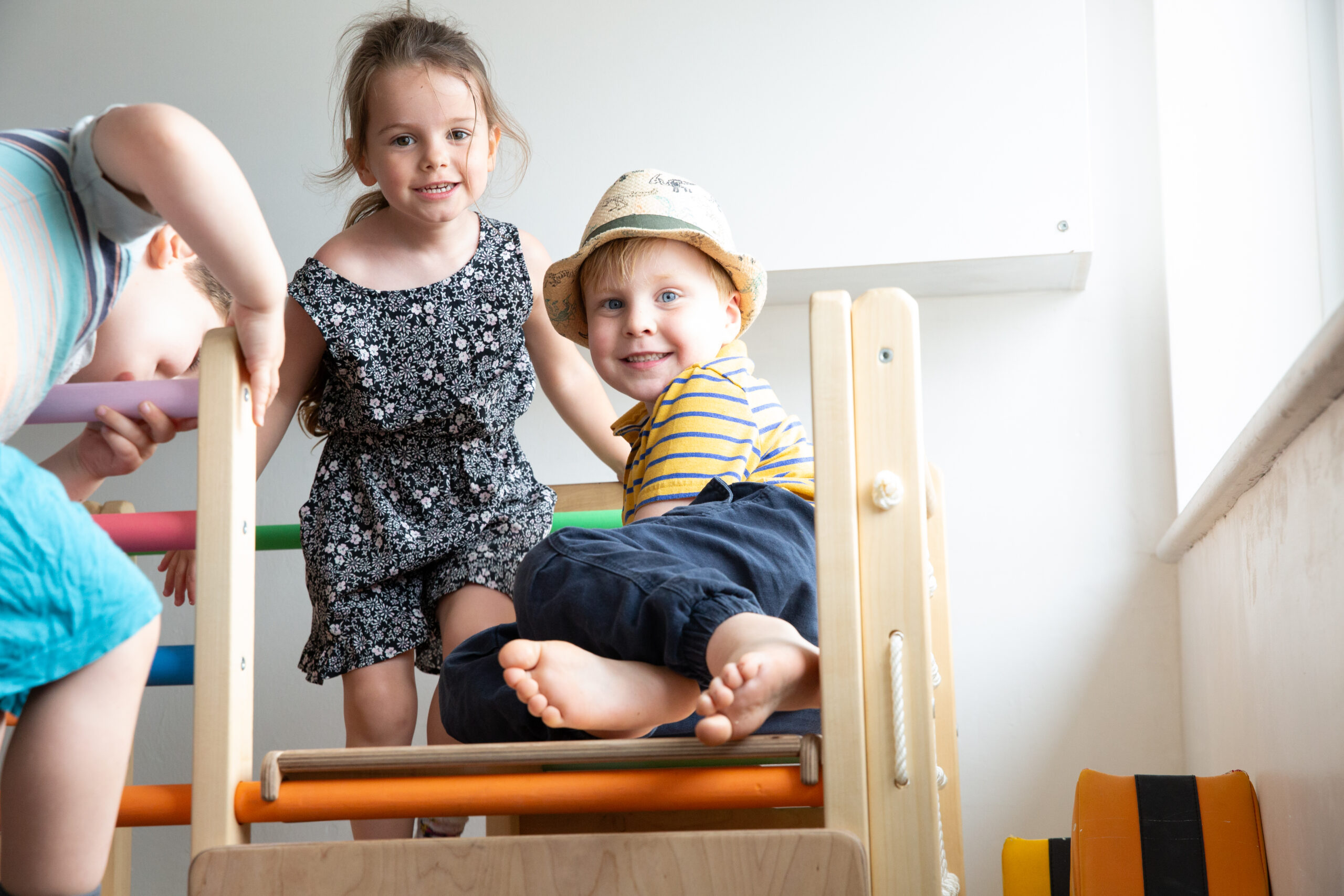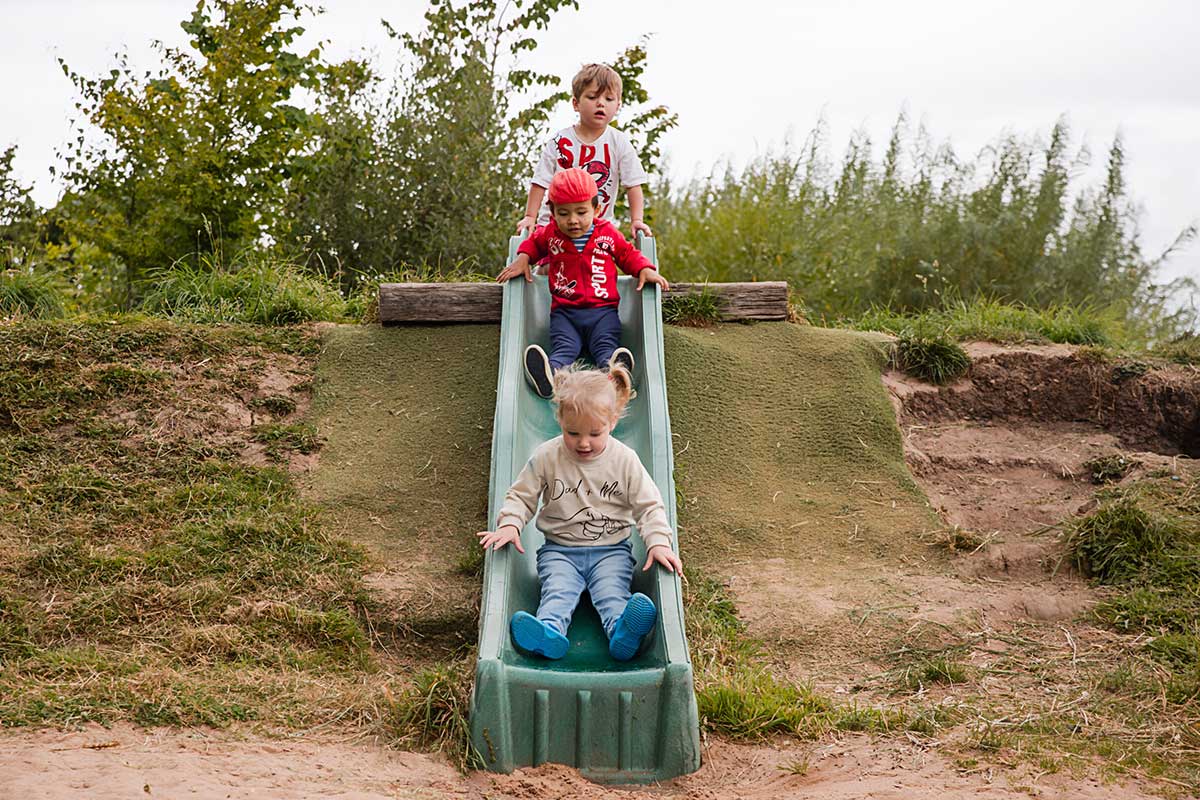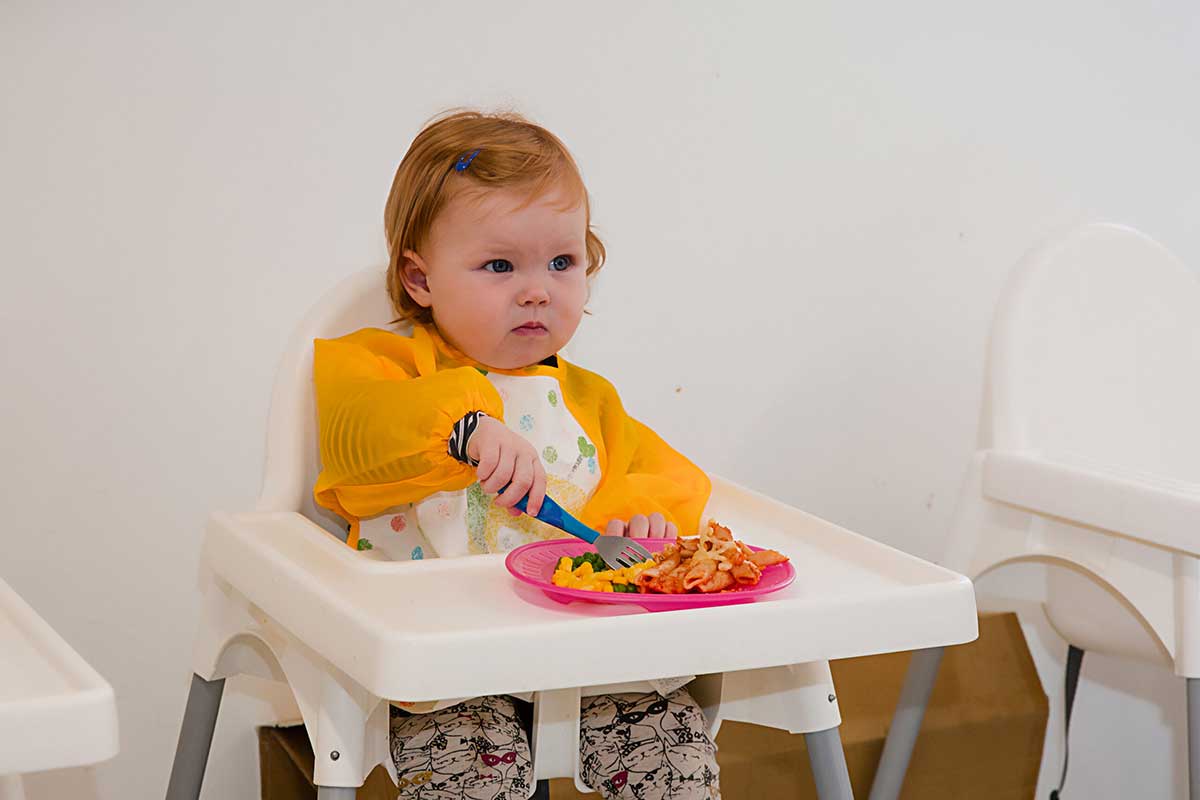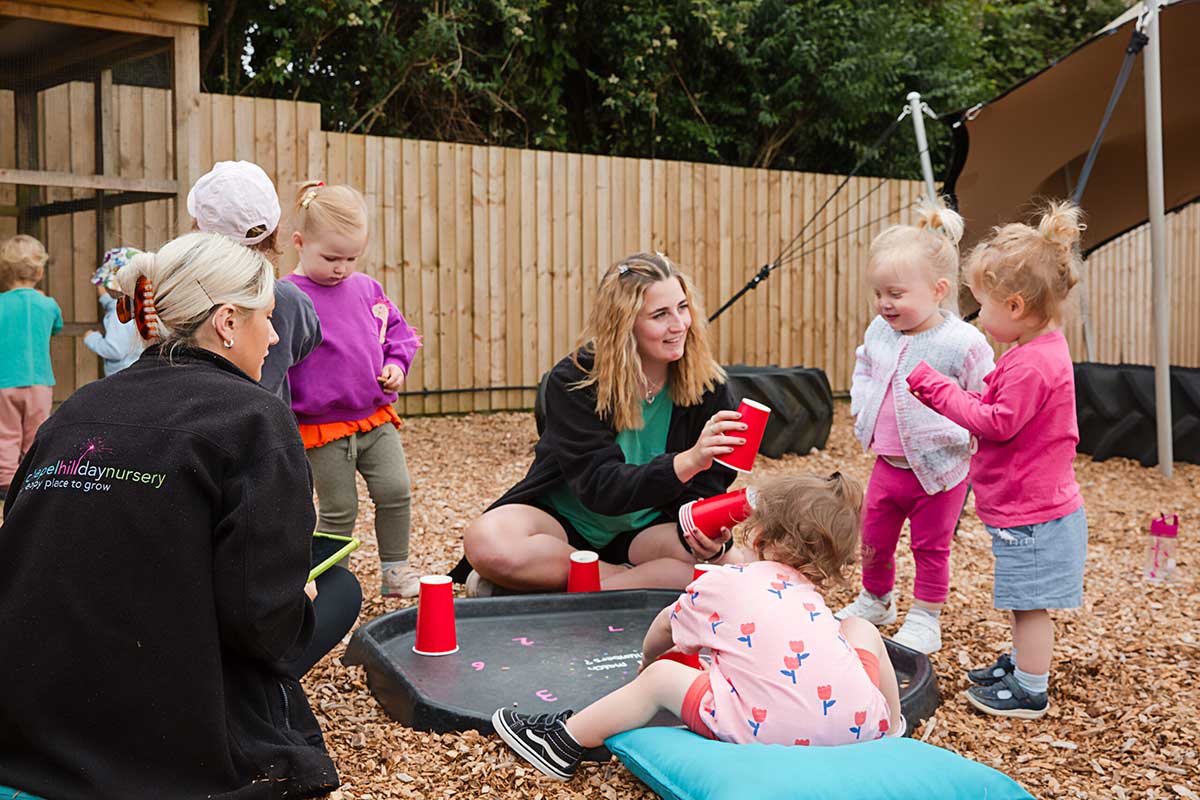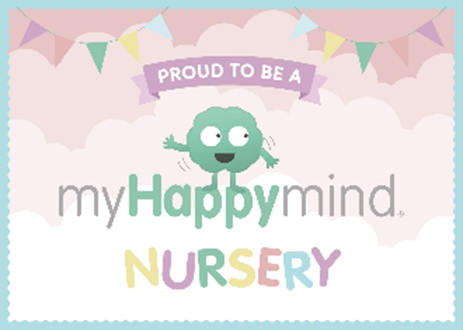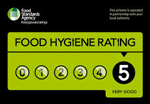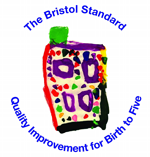Our SEND Offer
-
How accessible is the setting?
Our setting consists of a predominantly open plan environment, accessible at ground level. Our youngest baby room and sleep room are the only spaces inaccessible to wheelchairs. As reasonable adjustments can be made, we therefore have the capabilities to provide care and learning experiences for children of all ages.
How does the setting support language development and those with English as an additional language?
Most of our practitioners have taken part in Gloucestershire’s ‘Total Communication’ training. We encourage language development and communication through object reference, visual aids and promote the use of Makaton throughout each age group.
We expect to have children and families with a variety of languages and cultures and encourage families to share their home language and cultural celebrations with us as much as possible. The nursery SENCo carefully considers, and plans support and resources available to children with English as an additional language. Upon request we endeavour to provide translated paper communications to families.
We hold regular parent events at nurseries to encourage a sense of community and support for all.
How do you identify if a child needs extra help?
Practitioners consistently monitor children’s learning, recording their development through written, photographic, and video observations. Key carers are responsible for their own planning, which is tailored to the abilities and interests of each individual child. Observations of children’s learning and development are recorded in individual learning diaries which are accessible to parents online for viewing, parents can also comment on these themselves and send in observations from home. More detailed assessments are made throughout the year, which are shared with parents for viewing and feedback during a parent evening every 6 months and meeting carried out after a child’s 2-year check. The Key carer communicates daily with parents and carers to ensure all the child’s and family’s needs are met.
If staff or parents have any concerns regarding a child’s learning and development, then the nursery SENCo will be notified. Further observations will take place, and this will be monitored with maximum input from carers and parents (as per our graduated approach). When some evidence has been collected, the nursery Manager and/or the nursery SENCo will have a meeting with the family to discuss what support is available for the child and their family. This may include personalised target setting withing the setting via a My Plan, further monitoring through an ABC form or seeking assistance from other professionals.
Who will be working with my child and what are their roles?
We endeavour to always have a minimum of 75% of staff at Chapel Hill qualified to a minimum of a Level 3 in Childcare and Education. We do employ nursery apprentices who are working towards a level 2 or 3 in Childcare and Education. The Nursery Manager Laura Hardy holds a Level 3 in Childcare and Education as well as a BA (Hons) in Early Childhood and the Company Director Danielle Long holds a Level 3 NVQ in Childcare and Education. Both our Manager and Deputy Manager have experience dealing with and supporting children and families with SEND, behaviour management and safeguarding.
Our Manager Laura is the Designated Safeguarding Lead, and our Deputy Manager Catherine is the Deputy Designated Safeguarding Lead.
How will I be able to raise concerns regarding my child’s development? How will I know if my child is making progress in their learning?
At Chapel Hill, we pride ourselves on compassionate staff and open communication with parents.
Before any child starts the nursery, we offer settling in sessions where the parents are introduced to the staff and the children’s learning environment and daily routines. This is a prime opportunity for parents and carers to discuss any concerns or requirements they have regarding their child starting the nursery with the people who will be caring for them.
Your child will be allocated a Key Worker with whom they will spend most of their nursery time, they will be responsible for monitoring and planning for your child’s development as well being the first port of call for any questions or concerns you may have.
Parents have access to an online children’s learning diary where all observations, reports and photos are kept. General development assessments are filled out termly, for children between the ages of two and three we have a specific ‘2-year Progress check’ this is usually written at the same time your child’s health visitor would also carry out milestones check at two years of age.
The nursery has a private Facebook group, a public Instagram account, our own website, email address and phone number if parents wish to contact us. Parents are encouraged to come into the office if they ever need to talk or have any concerns they may want to discuss with the Manager or Deputy Manager.
What is the settings approach to supporting different children’s needs and how will that help my child? How is the decision made about what type and how much support my child will receive and how will I be involved?
As previously stated, we involve parents in their children’s learning from the very first day they start at Chapel Hill. Each individual child’s needs are supported by their key worker through monitored observation and the development of activities catered to their needs and interests. If key worker and the nursery SENCo have observed that a child may need extra support during play, one to one session with a member of staff may be appropriate and may be able to be facilitated within the nursery. A meeting will be held with parents to put together an action plan for their child such as tracking forms to highlight any areas for support or triggers or a ‘My Plan’ with some ideas and achievable targets suggested and agreed upon by both parties to support the individual needs of the child. If the nursery and parents both agree that their child’s needs require more specialised support than the nursery can offer, then we will suggest involving external specialist agencies such as the local Early Years’ Service, Speech and Language or Occupational Therapy.
External agencies may come to observe children, talk to nursery staff about their development and see any evidence that has been collected before deciding what kind of support and how much support the child may need. If there is funding available to enable the nursery to facilitate this support, the local education authority can work with us to apply for this. The child’s parents or carers are involved and informed as much as possible at each stage of this process usually by organising a Team Around the Child meeting (TAC).
If a child has been supported as described above and they have been identified as having a development delay or traits that might indicate specific educational needs, where needs cannot be met by either a My Plan or a My Plan + and if appropriate we would discuss the benefits of an application for an Education, Health and Care Plan. The whole team of agencies and professionals supporting the child will be part of this as well as the child’s parents.
What training have the staff supporting children with SEND had or are having?
The Nursery SENCo Dave receives ongoing training from the Local Authority’s Early Years Team as well as privately funding continuous professional development library and is responsible for feeding this back to nursery staff and supporting their roles daily. All staff participate in an annual training day during which SEN and behaviour management updates, practices and policies are one of the focus areas.
How does the setting manage administration of medicines and manage personal care?
At Chapel Hill we are committed to providing the highest standards of care and as such we only administer medicines prescribed by the child’s doctor with the only exceptions of antihistamines for children over the age of two and the administration of Calpol in instances where a child is in pain but does not have a fever. The medicine is only administered by a senior member of staff, with the written consent of the parent or carer. This will be witnessed by another member of staff who will check the child’s name, type of medication and dosage. The only exception would be in the case of the child displaying a high fever whilst at nursery. In this instance, when the parent is more than 30 minutes away from collecting their child and to minimise the risk of febrile convulsions, with a previously signed consent form the parents a required to complete during initial registration, a senior paediatric first aid trained member of staff would administer Calpol in order to reduce that fever. A ‘child temperature log form’ will be completed, with the record of fever and details of actions taken which parents will sign on collection.
In case a child requires a long-term medical care plan, such as inhalers, insulin, creams or in case of an allergy a health care plan will be discussed with and completed by parents. If an allergy action plan has been provided by the GP, this will also be requested from the parents and a copy will be held at nursery, alongside a health care plan. Although all preventative measures will be taken to prevent the consumption of or contact with an allergen, as part of the child’s care plan, parents will be asked to provide their child’s epi or similar and in house training given to staff that need to use them. Staff training may be required for other illnesses and safe operation of equipment such as administration of insulin or CPAP oxygen therapy machines.
Only staff who hold a DBS check are permitted to change children and help with toileting. Where possible nappy changing areas are open but remain discreet and will always consider the child’s privacy and dignity. For older children or children who find nappy changes upsetting, there is always the option to change children on a changing mat on the floor so that they do not have to be lifted onto a changing unit.
The nursery provides nappies, creams and wipes, any alternative creams or wipes that are of preference to families will have to be provided. We have enough potties to enable staff to bring them into the rooms if necessary to support toilet training (in a private but accessible area). As a nursery we try to support this in any way we can and have put together a pack with advice and information from the children’s continence charity ERIC. We start to introduce the concept of potty training via role play, with babies, play nappies, play potties and role play self-care equipment such as toothbrush, hairbrushes, towels etc.
As a nursery we try and encourage independence at every opportunity, encouraging the children to try and dress and undress themselves, pour their milk for snack and breakfast and scrape their bowls into the waste when they have finished eating.
How will my child be prepared to move onto the next stage within the setting or onto school?
At Chapel Hill staff are sensitive to the needs of the children and parents/carers when they first start to attend nursery, move between age groups, and eventually leave the nursery to go to school. We offer support in the following ways:
- Information sharing with parents or carers and internally between key carers in each age group.
- Children who are joining us will be given a welcome pack which explains the values and curriculum of the nursery, they will also receive a picture of the room they are joining and the members of staff who will be caring for them.
- Settling in sessions prior to starting at nursery and moving to a new age group.
- Where possible, during transitions between internal age groups children will be kept with their peers during settling in sessions.
- We actively encourage children to bring in comforters or favourite toys from home to share.
- Special arrangements can be made to support children who speak English as an additional language and support from outside agencies where necessary.
- Where a child attends an additional setting at Chapel Hill we will, with parents’ permission endeavour to make contact with the other setting in order to work in partnership with them and share information regarding the child’s learning and development via a communication diary.
- Each child has an online learning diary, documenting their interests and learning development.
- In our pre-school group, activities, circle times and discussions will focus on ‘going to school’ as a theme from July to September. Display boards, books and role play uniforms will be made available to the children to explore during this time to encourage familiarity.
- For children with SEND leaving the setting at any stage, with the parent’s permission, the SENCo of the new setting will be invited to a review with either the SENCo or the nursery manager along with the parents or carers of the child and any of the professionals involved in supporting the child and their family. A transition action plan will be decided upon at this meeting and achievable aims will be facilitated by all agencies involved, detailed in a My Plan or My Plan + if necessary.
